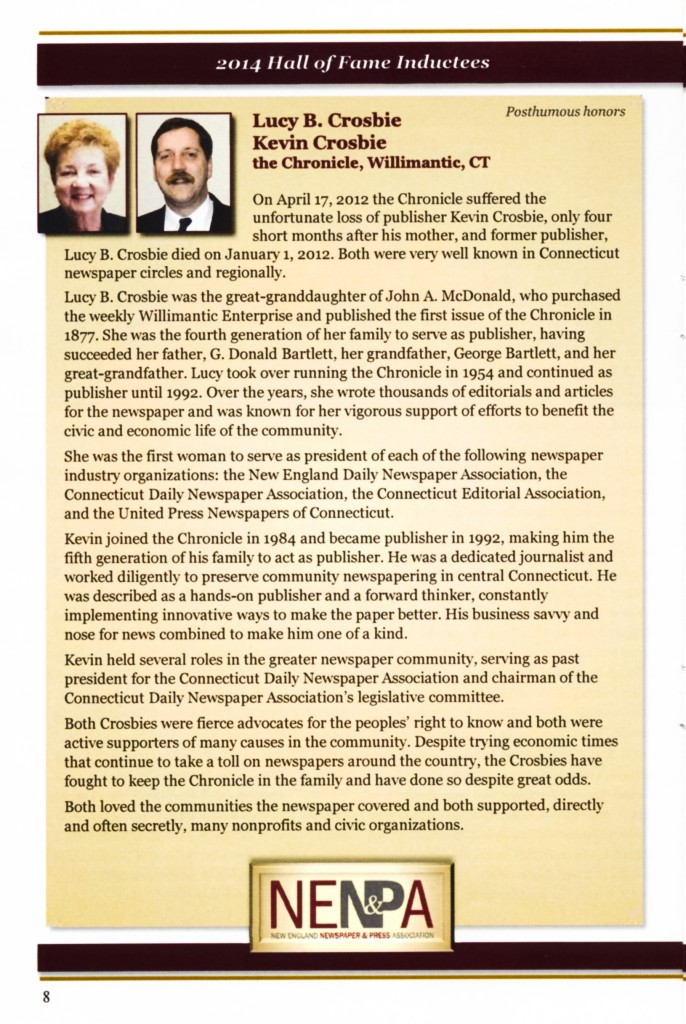Balinese Men
 Pura Luhur Uluwatu, Bali, Indonesia. May 26, 2012.[/caption]
Pura Luhur Uluwatu, Bali, Indonesia. May 26, 2012.[/caption]
 Pura Luhur Uluwatu, Bali, Indonesia. May 26, 2012.[/caption]
Pura Luhur Uluwatu, Bali, Indonesia. May 26, 2012.[/caption]
 Pura Luhur Uluwatu Temple, Bukit Peninsula, Bali. May 26, 2012.[/caption]
Pura Luhur Uluwatu Temple, Bukit Peninsula, Bali. May 26, 2012.[/caption]
Spring here in the Northern Hemisphere brings more color to the world, reminding me me of the power of color. Although the flowers and leaves have not yet blossomed where I am in Connecticut, this photo I took at a temple in Bali shows the power and pleasure of color.

A story in the Huffington Post features a chart from the book Daily Rituals: How Artists Work by Mason Currey and RJ Andrews how famously creative people spend their average days. Besides Ludwig von Beethoven, it features people such as Victor Hugo, Charles Darwin, Benjamin Franklin, et. a. Besides showing who was a ‘morning’ and who an ‘evening’ person, it’s helped me realize that my most productive working hours aren’t that eccentric.
What else I’m reading today:
For the first time in the history of the United States, the majority of member of its Congress are millionaires (as is President Obama and six of the nine members of the U.S. Supreme Court). So, is the United States governed by rich people? Quite literally, it is: the majority are people in the top one-percent of incomes.

I am proud that the New England Newspaper & Press Association has inducted my late mother and my late brother into the New England Newspaper Hall of Fame.
Please click this link to see photos of the induction dinner and event, which was held in the Park Plaza Hotel, in Boston, Massachusetts. Besides my surviving family, many people from the New England newspaper were there. Charles Ryan, editor of the daily Chronicle in Willimantic, Connecticut, gave the nomination speech. Patrice Crosbie, Kevin’s widow and his successor as Publisher of the Chronicle, accepted the award, which was given by Gary Ferrugia, publisher of The Day, of New London, Connecticut.
Are nude photographs art? Does nudity still shock you? If you’ve been perplexed by those questions, take a look at New York photographer Spencer Tunick’s ‘human art‘. During the past 20 years, thousands of people en masse have volunteered to disrobe and pose for him. I think his work is certainly art and nudity has ‘paint’ (even when his nudes are wearing paint!)
httpv://youtu.be/8zP7yP8hdLE
This amazing documentary from the Japanese TV network NHK (which someone on YouTube mistakenly labelled as from the BBC) details how advanced technologies about humanioid robots have become. Because I think NHK erred by starting the documentary with an artist’s robot, rather than with something more interesting, feel free to start this video as 4 minutes 15 seconds. This clips ends unexpectedly after 48 minutes, but continues (with a bit of overlap) at http://www.youtube.com/watch?v=qrBWsSFgNsM
Expect to see these robotic being around town in 2020. I’ll then be asking you if my home robot recognize who you are, greet you at the door, escort you to me, then get us some tea, coffee, or some other beverage?
“The most beautiful makeup for a woman is passion. But cosmetics are easier to buy.” – Yves Saint Laurent.
“Don’t tell me how educated you are; tell me where you have traveled.” – Mohammed.
“All is flux, nothing stays still. Nothing endures but change.” – Heraclitus.
“The seen is the changing; the unseen is the unchanging.” – Plato.
“It is not certain that everything is uncertain.” – Pascal.
“The future is here. It’s just unevenly distributed.” – William Gibson.
“If you want to know the future, invent it.” – Peter Drucker.
“The most important skill to learn is the skill to learn new skills.” – Paul Bourke.
“We cannot solve our problems with the same thinking we used when we created them.” – Einstein.
“They were there looking for people who had the talent to think outside the box. It never occurred to them that, if everyone had to think outside the box, maybe it was the box that needed fixing.” — Malcolm Gladwell.
“An important scientific innovation rarely makes its way by gradually winning over and converting its opponents. … Its opponents gradually die out and the growing generation is familiar with the idea from the beginning.” — Seventy-eight year-old, Nobel Prize-winning physicist Max Planck in 1934.
“Some see the glass as half empty, some see the glass as half full. I see the glass as too big.” — George Carlin.
“Of all manifestations of power, restraint impresses men the most.” – Thucydides.
“I have often reflected that the causes of the success or failures of men are dependent on their ability to suit their manner to the times.” — Machiavelli.
“Out of clutter, find simplicity. From discord, find harmony. In the middle of difficulty, lies opportunity.” – Einstein.
“Be regular and orderly in your life, so that you may be violent and original in your [creative] work.” – Flaubert.
“”Do not deny the classical approach, simply as a reaction, or you will have created another pattern and trapped yourself there” – Martial artist Bruce Lee.
“If they can get you asking the wrong questions, they don’t have to worry about answers.” – Thomas Pynchon, Gravity’s Rainbow
“This is a great wall.” – U.S. President Richard Nixon at the Great Wall of China, February 1972.

Emma and I visited Denmark earlier this month. Here are eight photos.
And videos from Copenhagen of Strolling down Strøget and Shipping out of Nyhavn.

I’d like to post galleries of my photographs. So, this is largely at test of my technical integration WordPress and Adobe Lightroom.
Rather than start with my photos, however, I’d discovered ten commercial slide photographs from someone’s trip to Le Crazy Horse Saloon in Paris during the 1960s. I’ve restored these formerly badly faded, half-century old photos, and now post here as a test of WordPress/Lightroom integration.
These days, the photos are merely softly risque period pieces. See for yourself.
“But, Vin, you’re a Progressive,” retorted a Libertarian friend during a political discussion. I was taken aback by his characterization of me!
‘Progressive?’ I’d never thought of myself as that. What did it mean? I’d remembered the term as from the United States history. During the late 19th and early 20th Centuries a progressive was someone who advocated legislation eliminating tenement housing, preventing child labor, and ensuring food safety. There was a Progressive Party founded in 1912 by former U.S. President Theodore Roosevelt.
Yet my experience has been that whenever someone tries to label you, they’ve already pre-packaged their view of the world. Few people are actually what other people label them. They’re instead more complex. Even people who label themselves, when asked questions that closely examine their values, will admit gaps, some opposite opinions, and plenty of nuances beliefs.
I realized that my Libertarian friend in 21st Century meant was not only trying to pigeonhole my beliefs, he was intentionally, inadvertently, or ignorantly trying to gloss over any complexities or nuances of our discussions. He wanted to believe I was either someone who just wants for the sake of change or someone who thinks that government can solve all problems. Neither of which is true.
However, the more I thought about he mischaracterized me, the more I realized there is another and newer meaning of Progressive that is unrelated to all those political old labels and characterizations. A meaning with which I agree and do identify. Allow me to explain.
During the nearly 60 years I’ve lived, I’ve seen the world change. The end of the Cold War, globalization, diversification, interwoven economies, international pollution and climate change, growing scarcity of resources, and decreasing scarcity of information are only some of those changes. The pace of change in all those things constantly accelerates. Yet so many of our institutions, laws, practices, and lifestyles haven’t or aren’t adapting to these obvious changes in the world. As the ancient Greek philosopher Heraclitus noted, change is the nature of things. Unfortunately, people fear or dislike change. So, it is human nature that our institutions, laws, practices, and lifestyles can become perilously out-of-date, particularly as the pace of change has accelerated.
No, not everything should change (fundamental human rights, for example). However, the list of things that need not change is remarkably small, as indeed any list of truly precious things will be. There are remarkably more things that need to change than don’t. So many institutions, laws, practices, and lifestyles are becoming obsolete. There is a need to bring those up-to-date with the way the world now obviously is. There is nothing new in that. Millennia of ‘divine rule’ by emperors or kings ended because it became out-of-date. So did the acceptance of slavery. Or the subjugation of women. So many other things that once were taken for normal.
I’m no Libertarian. Humanity tried that political philosophy for some 500,000 years up to a few centuries or millennia ago. It didn’t work well. My Libertarian friends see Conservatives and Liberals (or Tories and Liberals, or Republicans and Democrats), ‘left’ and ‘right’, simply as two basically identical but warring political parties, equal yings and yangs that, while struggling for power, just divide the populace. I think that characterization is wrong.
I instead see Liberals as people who accept the fact of change and Conservatives as people who deny the fact of change or wish change were reversed. It’s not politics but acceptance of change that divides the two sides. I think that every mature Liberal on the planet understands that government can’t solve everything. I think every mature Conservative on the planet understands that market forces can’t solve everything. I likewise think those Conservatives realize change has occurred and is occurring, just as those Liberals realize that change advocated simply for the sake of accelerating change is chaos.
I avow that change happened in the world. I advocate that too many of our institutions, laws, practices, and lifestyles need to adapt to the reality of the change, jettisoning old ways that are harmful, unfunctional, or archaic, even if cherished or traditional. I am a Progressive in the rapidly changing 21st Century.